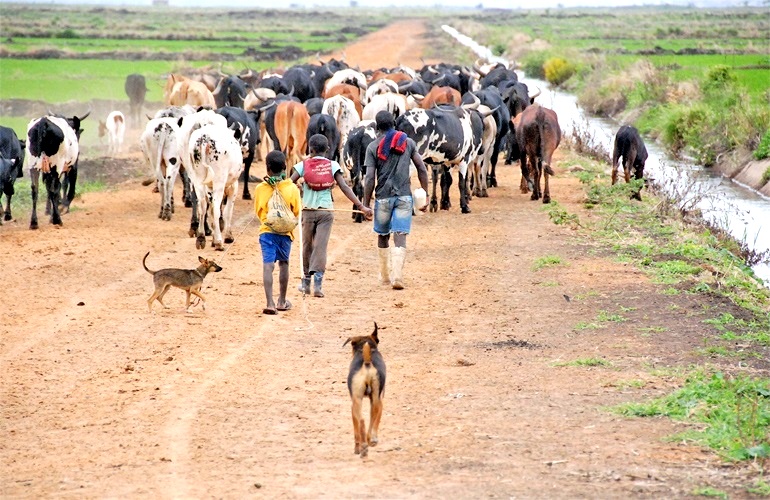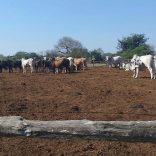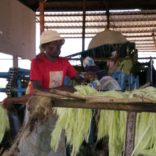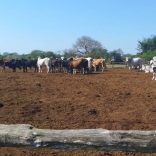Mozambique once again leads representation of global cotton producers
Mozambique: 50,000 doses of foot-and-mouth vaccine needed to stop outbreak

FILE - For illustration purposes only. [File photo: Notícias]
Gaza province, in southern Mozambique, needs 50,000 doses of foot-and-mouth disease (FMD) vaccine to save nearly 4,000 head of cattle, local authorities announced.
According to the head of the livestock department at the provincial directorate of Agriculture and Fisheries in Gaza, Sérgio Maneno, external dependence for the vaccine “constitutes a constraint on a rapid response to the spread of the disease”.
“The biggest problem is its rapid spread and because it has a huge economic impact, as it prevents the movement of animals from agricultural areas to the affected areas,” Maneno said.
Approximately 1,900 head of cattle and 1,800 head of goats are at risk of contracting foot-and-mouth disease in the village of Chibotane, in Massingir district, Gaza province, alone.
Sérgio Maneno urged residents to prevent the movement of cattle and livestock products in the districts of Massingir and Mabalane, both in Gaza province.
“The most important thing now is to comply with what was established by the ministry, which is to prohibit movement, and to ask economic agents to help us in this process, especially the Limpopo National Park, which can assist technicians in controlling this disease,” Maneno explained.
Foot-and-mouth disease was diagnosed in Massingir in June – the second local outbreak of the disease in less than a year. Contact between livestock and buffalos is the main cause of this disease, authorities say.
“The disease causes sores around the mouth, and the animal cannot eat for a few days. But it soon returns to normal, and the situation improves. We are waiting for the vaccine from the ministry to create a ring around the region where the outbreak began,” the official explained.
A government report flags foot-and-mouth disease as the disease with “the greatest negative impact on the economy”, with Mozambique registering 15 outbreaks in 2023, compared to 25 in 2022, of which 13 were in Tete province and two in Manica, both in the centre of the country.
“Its occurrence could lead to a ban on trade with international markets, for both animal and plant products from the affected areas,” the report noted.












Leave a Reply
Be the First to Comment!
You must be logged in to post a comment.
You must be logged in to post a comment.